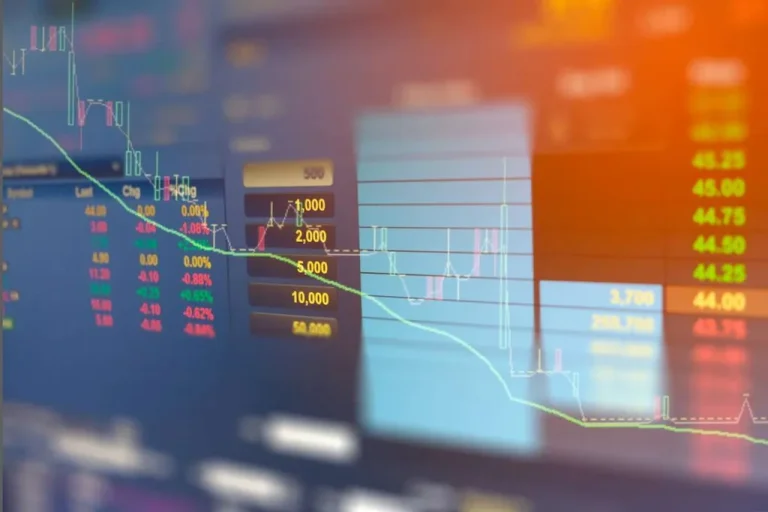Banks can minimize downtime and efficiently Big Data in Trading schedule upkeep by predicting hardware and software failure and automating failure alerts. Thus, banks can enhance their operational efficiency by predicting the failure of IT systems. AI-powered forecasting models may give banks an idea of their development projections and income estimates by forecasting micro and macroeconomic events.

Machine Studying Functions In Business
The banking sector is consistently grappling with fraudulent activities, which may severely dent customer trust and the financial backside line. Data analytics performs an important role in detecting anomalies and patterns that could point out fraudulent transactions. Advanced analytics instruments can learn from historical data to foretell and establish potential fraudulent activity before it happens, thus enhancing safety measures. Banks are utilizing knowledge analytics to rework their operations, improve customer expertise, mitigate dangers, and ensure compliance with laws. The BFSI trade will obtain a better grasp of its needs, by aligning with the most recent applied sciences like Big Data and the opposite world trends both internally into their operations and with clients. This will assist the BFSI trade to supply improved services in a well timed method with optimized operational prices.
Why Choose Information Analytics Courses In Chennai?

Machine learning, which is powered by large quantities of data, greatly aids in fraud identification and prevention. Analytics that analyze shopping tendencies have helped to reduce credit card security points. When safe and useful credit card data is stolen, banks can now immediately freeze the card and the transaction, as well as advise the buyer of the safety threat. By analyzing data on issues like employee productiveness and customer satisfaction, banks could make changes to their operations that will save money and time. By analyzing customer information, banks can establish areas where the shopper expertise can be improved, corresponding to by simplifying the process of opening a new account or offering more personalised service.
- By using AI and ML, bankers can find great insights from the info, permitting them to make higher decisions.
- The knowledge analysts use machine learning to create algorithms that monitor the prices, trades, fluctuations and tendencies.
- It can present insights into bottlenecks in the system, inefficiencies in processes, and areas of waste.
- An AI-led evaluation platform can not only allow you to with record-keeping but in addition with real-time evaluation.
The Key Challenges In Banking Sector
Financial institutions are using the expertise for easy cash switch to a complex trading system, making financial services extra accessible, cheap, environment friendly, and progressive. This fast evolution of digital expertise is taking the world by storm and posing challenges to the regulatory authorities in a country like India. Technology helped the banking industry with online banking, cell banking, and remote banking, decreasing dependency on bodily branches and reaching a broader buyer base using virtual bank sources. The financial providers business has seen super growth in the use circumstances encompassing different data in the latest previous.
What’s Huge Knowledge In Finance And Banking?
The significance of Data Science within the banking sector can’t be overstated. This transformation fuels better threat evaluation, delivers personalized buyer experiences, fortifies fraud detection, and optimizes general operations. As the integration of Data Science banking continues to progress, we can anticipate even more remarkable advancements that may nurture growth, improve efficiency, and fortify the financial panorama.
Data science is essential on this area, as banks can set optimum money flows to the varied bank branches and ATMs by predicting money requirements. AI-powered methods analyze transaction patterns, buyer conduct, and seasonal developments to optimize money administration, serving to banks reduce costs and risks. The impression of these knowledge science-based technologies is broad and might be discussed in the subsequent section. Initially popularized by Bitcoin, blockchain is now widely adopted in finance and banking for its promise of enhanced safety, transparency, and effectivity. Banks use blockchain to safe transactions, discover cross-border funds, and verify digital identities. Additionally, data science plays an important function in blockchain by detecting anomalies, preventing unauthorized activities, and optimizing community performance.
China’s quick embrace of central financial institution digital currencies exemplifies the disruptive potential of blockchain-based fiat money. Finance four.zero may lead to decentralized autonomous teams that reinvent finance in a peer-to-peer sharing financial system. While monumental in scale and influence, the present part of transformation is just the tip of the iceberg when it comes to the technology-enabled modifications forward for the global monetary system. This summary summarizes the technological drivers, current impacts and future trajectory of the Finance 4.0 revolution that is reshaping the panorama of economic services. It highlights the key innovations in digital systems which are enabling this transformation as nicely as the benefits and challenges for institutions, prospects and regulators.
Introduction To Massive Knowledge In Banking
Veracity refers again to the uncertainty and inconsistency that the information can typically present, which can hinder the method of dealing with and managing the info effectively. According to Investopedia, Big Data is a considerable quantity of data collected from numerous social media websites, questionnaires, product purchases given voluntarily. This information is stored in laptop databases and analysed using software designed to deal with large, complex amounts of data and arriving at a conclusion at an rising speed. Social engineering attacks have emerged as a dominant methodology for cyber fraudsters to penetrate organizations.

Microservice structure is a important innovation in banking, where knowledge science performs a significant position. Traditionally, software was built as giant, interconnected methods, making it tough to replace or modify with out unintended penalties. Technological developments are making this sector extra reliable, making transactions safer, and enhancing customer experience with minimal interaction.
Back in 2008, Big Data and Business Intelligence know-how aided in this endeavor and enabled Banking and Financial Institutions to problem the standing quo, kicking off the rise of Big Data in the Banking Sector. Banks employ Big Data and BI technologies such as Hadoop and RDBMS in all of their processes, changing the face of banking for the higher. Big Data has helped remodel organizations and establishments all all over the world, from digitizing all banking procedures to converting growing countries from cash-heavy transactions to digital transactions. It could be characterised as knowledge sets that are too giant or too advanced for typical relational databases to seize, manage, and process with low latency. Big knowledge has characteristics such as high quantity, excessive velocity, and high variety.
By harnessing data science, banks and fintech firms can achieve useful insights, improve decision-making, and optimize operations. Efficient cross-selling of merchandise can occur by analysing customer behaviour patterns at places where multiple merchandise are supplied. This analysis may help establish which specific merchandise are to be sold to whom and assist banks in channelising their gross sales and advertising efforts.
Read more about https://www.xcritical.in/ here.
